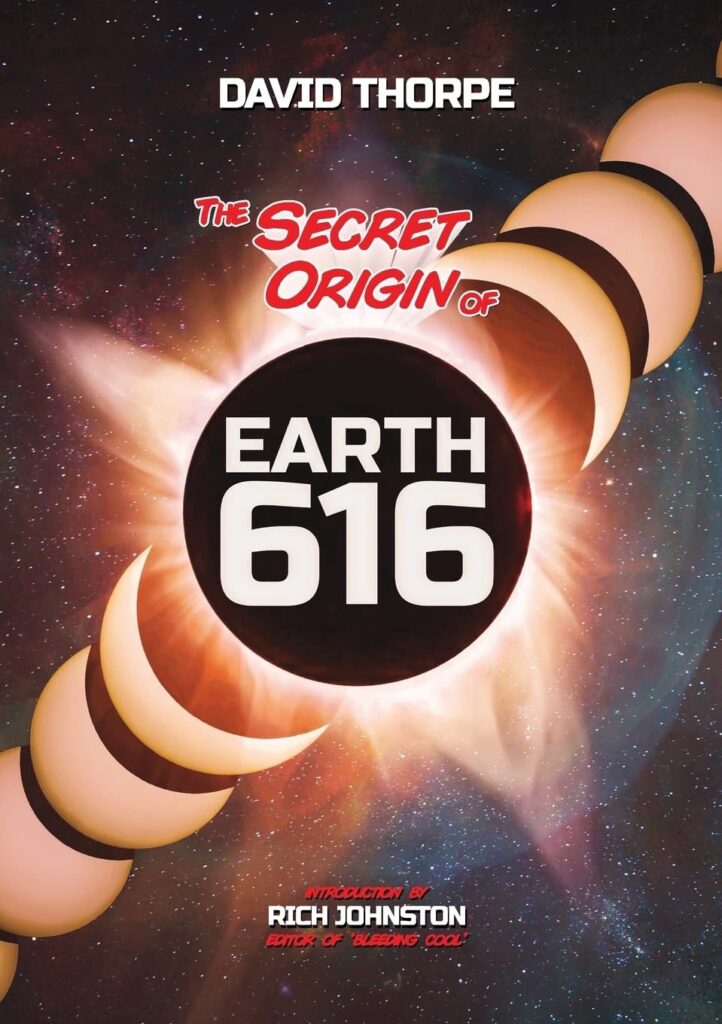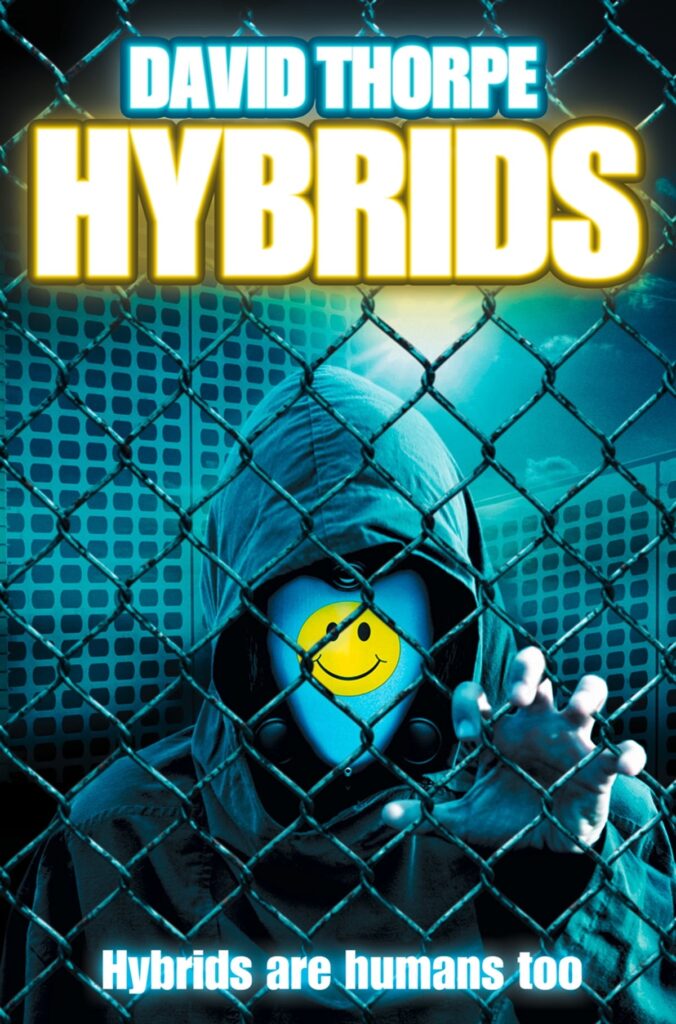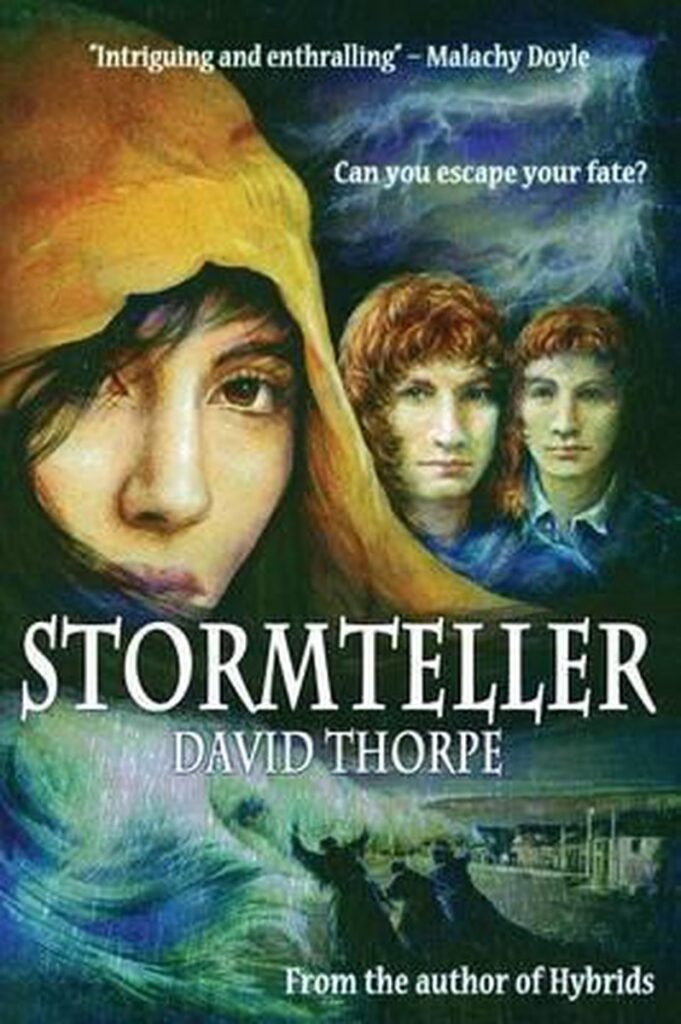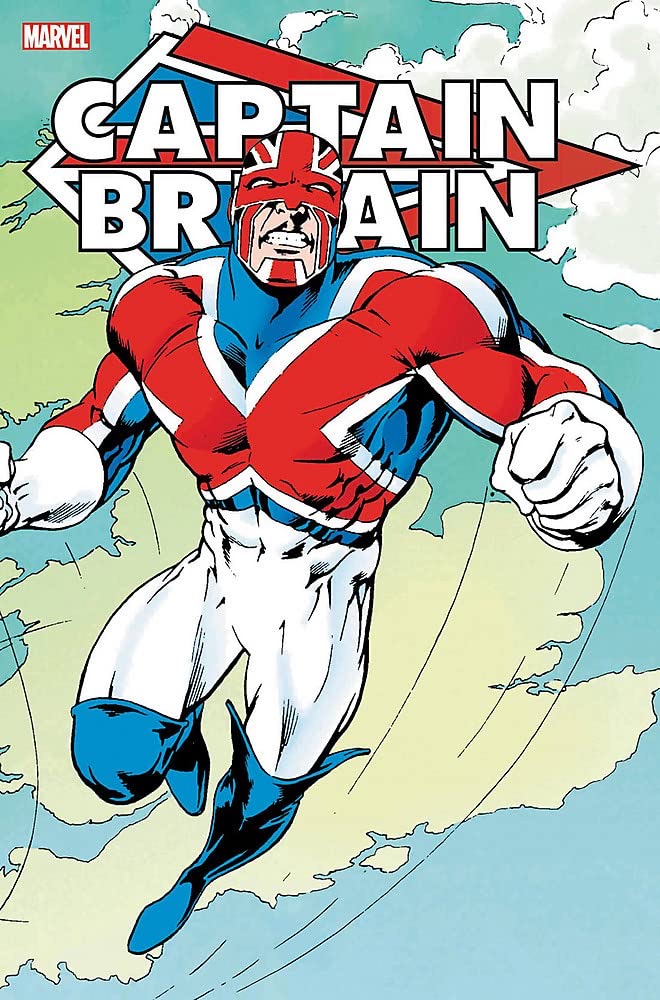Review by James Bacon

The Book: Marvel’s world-famous Cinematic Universe is set in an alternate reality called Earth 616. The Secret Origin of Earth 616 reveals how it came to be.
David always wanted to be a writer for Marvel Comics when he was a child. Find out how he fulfilled that dream and how his stories of Captain Britain spawned the multiverse which became the setting of the most successful film franchise of all time.
Discover why superheroes are so popular, the importance of the secret identity and the world of British Comics in the 1980s and 1990s, the power of alternative realities and alternative versions of yourself, and how David used this concept to overcome his disability.
The Review: A hugely positive five star review of The Secret Origin of Earth 616.
This is a fascinating book, and, for Captain Britain fans, a definite buy. For comic fans interested in Marvel UK, of great interest. Yet it is also an excellent autobiography, a very readable and personal exploration of a comic fans desires, aspirations and progression to be a writer and an insight into how Marvel UK was, and offers real honesty when it comes to a comics career that took an interesting turn that saw David Thorpe’s work in the industry elsewhere. The story is brimful, and includes how another comic related moment saw him turn to a very successful career beyond comics, one that arguably has made a real difference to the world.
The Secret Origin of Earth 616 is a interesting read that offers a level of philosophical thought and reflection on the great question, of what might have been, yet with few regrets and written with fine sentiment, despite challenges at various stages, David delivering a writerly book that is engaging, thoughtful and nice.
David Thorpe came up with the concept of Earth 616, and he describes it as a Stan Lee styled “Hoo Boy” moment when he heard Mysterio say “This is Earth dimension 616. I’m from Earth 833.” to Spider-Man in Spider-Man: Far From Home and that is something that any comic reader can appreciate, many of whom have imagined themselves as writers.
David shares his personal history, finding comics, finding himself, a youth that had challenges. We see him enjoying reading comics, as many of us do, and he discusses the concept of retreating into one’s personal thoughts and imaginations, and it comes across well. He grows up to be quite progressive, indeed heads to Lancaster University where he seems to figure out how to do a degree in Dada and Surrealism, which is quite unique, studying in the 1970s, and shares views on this. He gets to go to America and sends off hopeful scripts to the Marvel Bullpen, to editor-in-chief Jim Shooter himself, and visits twice, getting to see the man and discuss potential ideas. That’s some determination, effort and drive going on there.
A phone call later sends him to meet Paul Neary who was running Marvel UK in London at the time, in 1981, and so he gets to work there, first as an art assistant, and then going on to write “Captain Britain”, which Alan Davis drew, and while not Alan’s first professional work, this was an exciting moment for both of them. The character had been on a hiatus and so they took advantage of a huge opportunity, presenting him with a new uniform and significantly changed.The story started strongly in Marvel Superheroes issue #377 and contained some great work.
His concept of Earth 616 works well within the broader idea of the Multiverse. Indeed, David goes into considerable detail of the idea in a broader sense, and I have to say, I enjoyed his writing style. When it seems go in a direction I am not so sure of, he deftly brings it back, at one stage noting “Although this is nonsense, it carries a serious metaphorical implication” thusly sharing his views, offering them for consideration in a pleasant way.
He also discusses, of course, the history of the multiverse and how it worked for Marvel as a convenient way to fix paradoxes, inconsistencies, and allow creative scope that is in sense infinite, although it is so interesting to see how Earth 616 was not the Earth that it ended up being. Earth 616 is the world where Marvel takes place, and David Thorpe came up with the number, giving an identifier to help readers perhaps understand the concept of a multiverse, multiple universes and as one hears “Same, same but different”.
The fascinating aspect, and one that ties in nicely, is that David created Earth 616 to identify a particular world, one that Captain Britain went to, a detestable, oppressive place, a reflection on right wing of British politics at the time, his work representative of a progressive view. Then, of course, that was taken differently, as he explained himself: “There was one critical factor in why Earth 616 became the opposite of what we intended by its creation, i.e., the main Marvel universe: we did not tell the New York bullpen why we invented it.”
Alan Davis, whose art David speaks so highly of, was crucial at many points, and it was fortuitous, as Alan was key in helping cement the concept of Earth 616, encouraging Chris Claremont to use it in Excalibur, so that “our stories inhabited the same universe” – and thus it became the reality of the Marvel world.
There is a continual sentiment throughout the book. David speaks of so many people, and he speaks so highly of them. I was worried that there would be a bitterness to his writing, but that is not here at all, there is clarity to his view that neither feels tinged with red mist nor tainted with green envy, he shares his experiences and if anyone is to blame for a change in direction that saw him effectively cease as a comic book writer, not attaining the Marvel career he had dreamed of, it is himself, and he does it knowingly, with a bit of regret, but honestly.
He decided to stop writing for Marvel UK when a story he had written led to a disagreement with Alan Davis, who was unhappy with the script, and the matter escalated. Back then, Marvel UK as a publisher was operated by the Babani Brothers, who did not want political issues in the comics, and so there was an editorial pressure on creators not to include them. David had decided to write a story of Captain Britain set in Northern Ireland in 1982, what would be a fascinating, but hot potato story, and Alan Davis did not want to draw it. Bernie Jaye, who worked on the story, scrubbed out the references to Northern Ireland. David notes that “if she received one letter from an irate vicar in Surbiton her job would be on the line.” and David shares further insight, revealing how he read a preview copy of Rob Kirby’s long awaited book on Marvel UK, From Pence To Cents, that “Paul Neary had been told quite categorically by Brian Babani [the publisher] that there should be no politics, or heads would roll”, according to an interview with Bernie Jaye in a fanzine, which is fascinating.
David reflects on this, as he again quotes Kirby, “So presenting a story that reflected the situation in Northern Ireland was obviously in complete opposition to that edict.”
Understanding how attached to the script Thorpe was – and knowing that the writer felt so strongly that Northern Irish readers should see themselves accurately reflected in British comics – Jaye then suggested trying to turn it into a full-blown allegory instead. ‘The most important priority was not to get the script canned given that it was a minor miracle that it existed at all’, Jaye added. ‘This meant the abandonment of the wider storyline that Thorpe had already mapped out by the time he’d left he series”
And so we have reflection upon the situation, and then David continues into work in film and TV and then back into the comics industry. But not before he adds a quote from Alan Davis, also from Kirby’s book where he says of David that he “could have been celebrated as one of the more experimental and dangerous comics writers.”
That’s a raw honesty and preparedness to face a regrettable past here. Does anyone not regret a decision at some stage? But here it is open on many people’s parts, one which led to a change of direction for David, and one that neatly presents these books, histories in conversation with one another.
David worked in film, then in comics as a writer and editor, producing Doc Chaos, a commissioned tv series also spawning two comics series, and a novella. Then some fortuitousness occured, in Alan Moore’s house. David worked on many projects, including with Mad Love, writing for AARGH, Artists Against Rampant Government Homophobia, an anthology fighting against Clause 28, in the Local Government Act 1988, seeking to outlaw the “promotion of homosexuality”. For this, he wrote “I Was a Teenage Target”, drawn by Lin Jammet. While he was there with Alan there was a discussion of Global Warming, and this led him towards a path in pursuit of renewable energy and sustainable building, founding the One Planet Centre – one which we might consider he is quite humble about in this book, given his output, and the good work he undertakes.
Overall, this is a really interesting book, a very easy read, but one with quite a lot to contemplate, insightful and an enjoyable read, it comes well recommended and will sit well on any comic book fans shelf.
James Bacon
James is very interested in when comics and Irish History converge or connect and he’s planning a second piece, looking at this aspect in some more detail.
• The Secret Origin of Earth 616 by David Thorpe is available from AmazonUK here (Affiliate Link) | 242 Pages | Published by Cambria Books | ISBN 978-0993086281

David Thorpe is a Marvel comics writer whose prize-winning YA novel Hybrids, published in 2007, was called “stunningly clever” by The Times.
David is a film/tv scriptwriter, and a co-founder of the London Screenwriters Workshop. He teaches a writing course online, based on his book, Making Readers Care.


Stormteller, published in 2014, led to his presence on the first two Hay Literature Festival climate fiction panels.
As the Director of the One Planet Centre, he’s written over a dozen titles on environmental protection and renewable energy, including One Planet Cities: sustaining humanity within planetary limits (Routledge, 2019) and The One Planet Life (Routledge, 2015). He has also written hundreds of articles on sustainability.
Since he has cerebral palsy, he takes a stand for disability rights.
Further Reading
• David Thorpe is online at davidthorpe.info
• Captain Britain in Trouble! by James Bacon
• Check out and follow A Distant Beacon, Rob Kirby’s web journal
• Read our “Marvel UK: “Genesis ’92” – Looking Back and What Might Have Been” resource
Captain Britain Omnibus
• Available here from AmazonUK (Affiliate Link)
ISBN: 978-1302932268
Follow the United Kingdom’s greatest champion from the streets of London to the mystic realm of Otherworld! Brian Braddock, hand-picked for greatness by the sorcerer Merlyn, has made the fateful choice between the sword of might and the amulet of right – and become a hero! Now, thrill to a complete collection of Captain Britain’s iconic UK adventures – from questing alongside the Black Knight, to battling Jim Jaspers and the Fury to prevent Earth from becoming a crooked world! But when Brian suffers a crisis of faith, will his sister Betsy inherit the mantle? Featuring the Special Executive, the Warpies, the Captain Britain Corps, Meggan and more!
Collecting: Material from Captain Britain (1976) 1-39; Super Spider-Man & Captain Britain (1977) 231-247; Hulk Comic (1979) 1, 3-46; Incredible Hulk Weekly (1980) 47-55, 57-63; Marvel Super-Heroes (1972) 377-388; Daredevils (1983) 1-11; Mighty World of Marvel (1983) 7-16; Captain Britain (1985) 1-14; Marvel Tales (1964) 131-133; Marvel Team-Up (1972) 65-66; New Mutants Annual (1984) 2; X-Men Annual (1970) 11
The founder of downthetubes, which he established in 1998. John works as a comics and magazine editor, writer, and on promotional work for the Lakes International Comic Art Festival. He is currently editor of Star Trek Explorer, published by Titan – his third tour of duty on the title originally titled Star Trek Magazine.
Working in British comics publishing since the 1980s, his credits include editor of titles such as Doctor Who Magazine, Babylon 5 Magazine, and more. He also edited the comics anthology STRIP Magazine and edited several audio comics for ROK Comics. He has also edited several comic collections, including volumes of “Charley’s War” and “Dan Dare”.
He’s the writer of “Pilgrim: Secrets and Lies” for B7 Comics; “Crucible”, a creator-owned project with 2000AD artist Smuzz; and “Death Duty” and “Skow Dogs” with Dave Hailwood.
Categories: British Comics, British Comics - Books, Comics, Creating Comics, downthetubes Comics News, downthetubes News, Features

 In Review: The Modesty Blaise Artists (Illustrators Special)
In Review: The Modesty Blaise Artists (Illustrators Special)  In Review: Tomorrow Revisited
In Review: Tomorrow Revisited